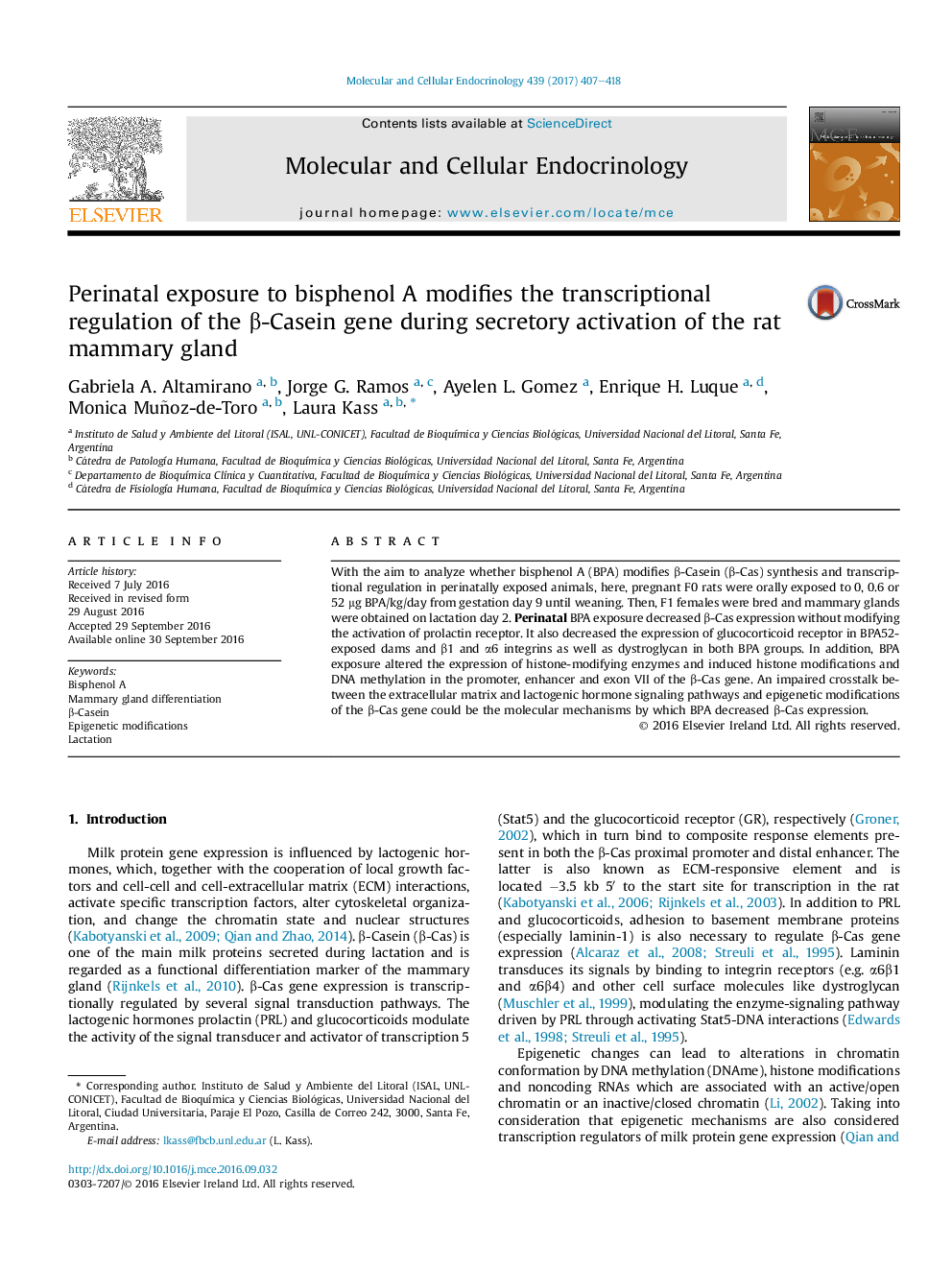| Article ID | Journal | Published Year | Pages | File Type |
|---|---|---|---|---|
| 5534332 | Molecular and Cellular Endocrinology | 2017 | 12 Pages |
â¢Perinatal BPA exposure decreased β-Cas gene expression independently of PRL signaling.â¢BPA altered the expression of HDAC1, HDAC3 and EZH2 in the lactating mammary gland.â¢BPA induced acetylation and methylation of histones in the β-Cas gene.â¢BPA induced changes in the DNA methylation status of the β-Cas gene.
With the aim to analyze whether bisphenol A (BPA) modifies β-Casein (β-Cas) synthesis and transcriptional regulation in perinatally exposed animals, here, pregnant F0 rats were orally exposed to 0, 0.6 or 52 μg BPA/kg/day from gestation day 9 until weaning. Then, F1 females were bred and mammary glands were obtained on lactation day 2. Perinatal BPA exposure decreased β-Cas expression without modifying the activation of prolactin receptor. It also decreased the expression of glucocorticoid receptor in BPA52-exposed dams and β1 and α6 integrins as well as dystroglycan in both BPA groups. In addition, BPA exposure altered the expression of histone-modifying enzymes and induced histone modifications and DNA methylation in the promoter, enhancer and exon VII of the β-Cas gene. An impaired crosstalk between the extracellular matrix and lactogenic hormone signaling pathways and epigenetic modifications of the β-Cas gene could be the molecular mechanisms by which BPA decreased β-Cas expression.
